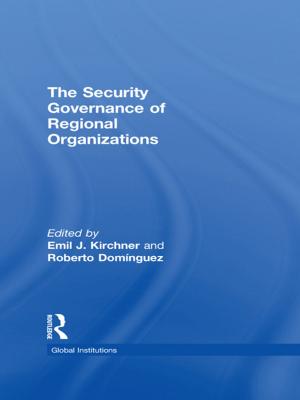Nomadic and Indigenous Spaces
Productions and Cognitions
Nonfiction, Social & Cultural Studies, Social Science, Human Geography| Author: | Judith Miggelbrink, Joachim Otto Habeck, Peter Koch, Nuccio Mazzullo | ISBN: | 9781317087038 |
| Publisher: | Taylor and Francis | Publication: | May 6, 2016 |
| Imprint: | Routledge | Language: | English |
| Author: | Judith Miggelbrink, Joachim Otto Habeck, Peter Koch, Nuccio Mazzullo |
| ISBN: | 9781317087038 |
| Publisher: | Taylor and Francis |
| Publication: | May 6, 2016 |
| Imprint: | Routledge |
| Language: | English |
This volume is devoted to aspects of space that have thus far been largely unexplored. How space is perceived and cognised has been discussed from different stances, but there are few analyses of nomadic approaches to spatiality. Nor is there a sufficient number of studies on indigenous interpretations of space, despite the importance of territory and place in definitions of indigeneity. At the intersection of geography and anthropology, the authors of this volume combine general reflections on spatiality with case studies from the Circumpolar North and other nomadic settings. Spatial perceptions and practices have been profoundly transformed by new technologies as well as by new modes of social and political interaction. How do these changes play out in the everyday lives, identifications and political projects of nomadic and indigenous people? This question has been broached from two seemingly divergent stances: spatial cognition, on the one hand, and production of space, on the other. Bringing these two approaches together, this volume re-aligns the different strings of scholarship on spatiality, making them applicable and relevant for indigenous and nomadic conceptualizations of space, place and territory.
This volume is devoted to aspects of space that have thus far been largely unexplored. How space is perceived and cognised has been discussed from different stances, but there are few analyses of nomadic approaches to spatiality. Nor is there a sufficient number of studies on indigenous interpretations of space, despite the importance of territory and place in definitions of indigeneity. At the intersection of geography and anthropology, the authors of this volume combine general reflections on spatiality with case studies from the Circumpolar North and other nomadic settings. Spatial perceptions and practices have been profoundly transformed by new technologies as well as by new modes of social and political interaction. How do these changes play out in the everyday lives, identifications and political projects of nomadic and indigenous people? This question has been broached from two seemingly divergent stances: spatial cognition, on the one hand, and production of space, on the other. Bringing these two approaches together, this volume re-aligns the different strings of scholarship on spatiality, making them applicable and relevant for indigenous and nomadic conceptualizations of space, place and territory.















